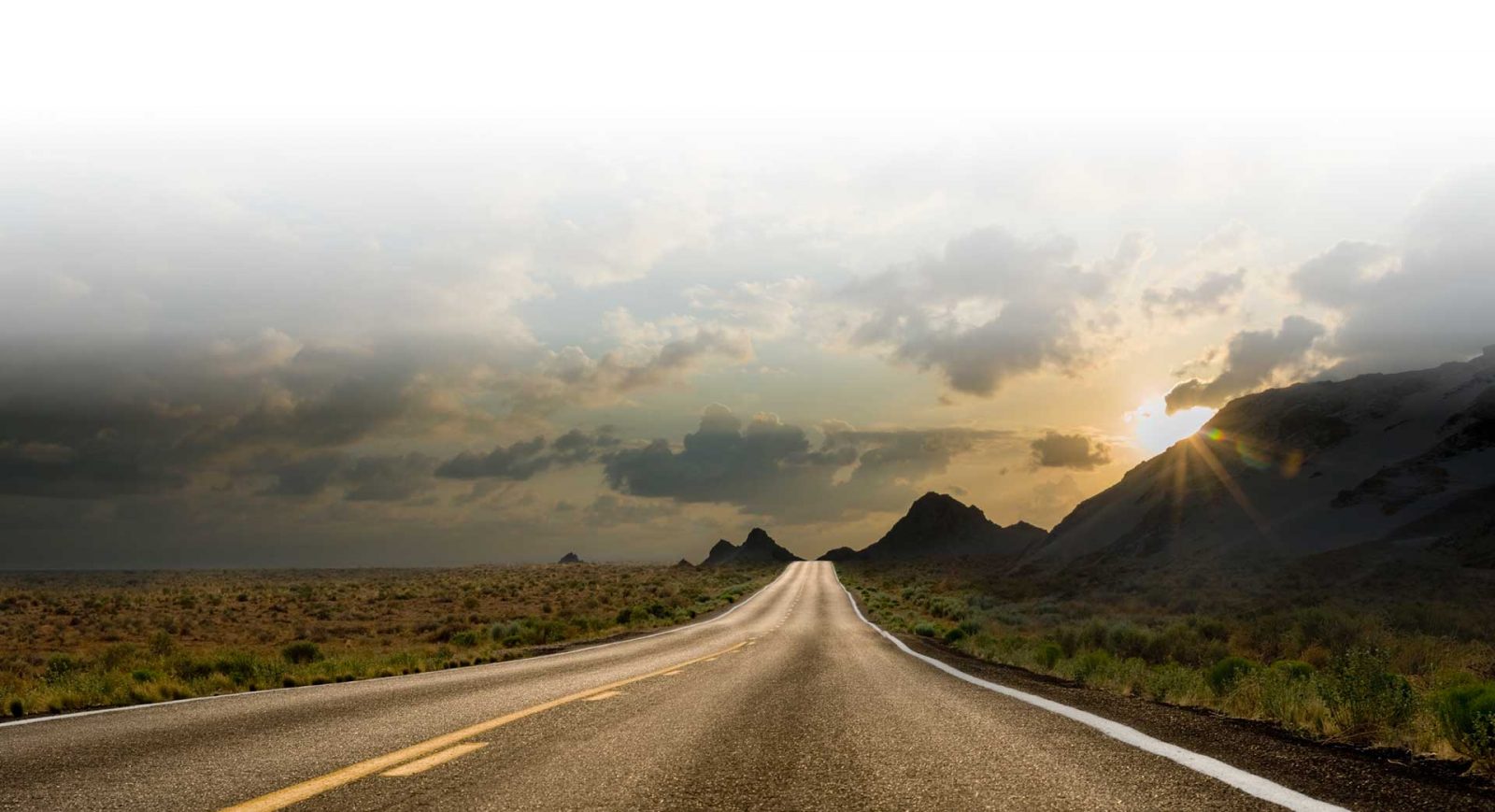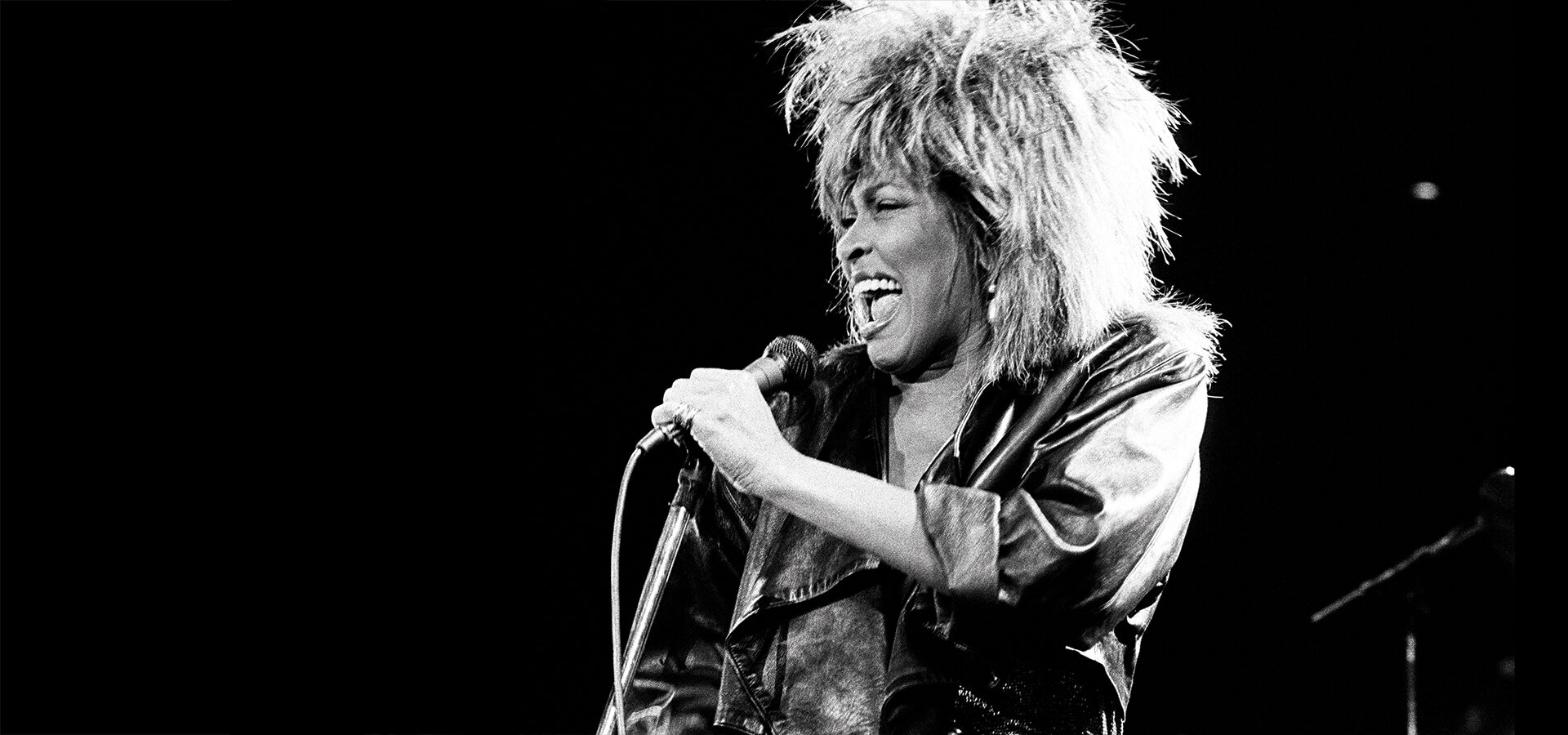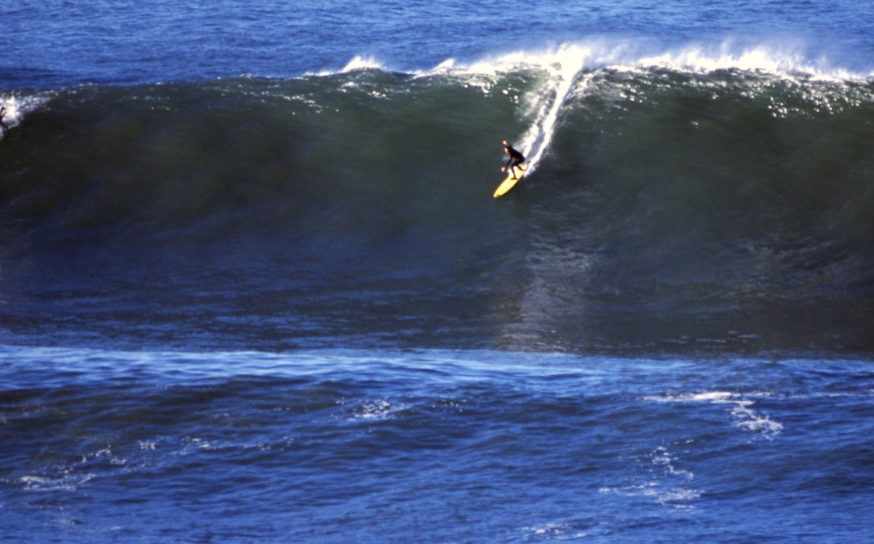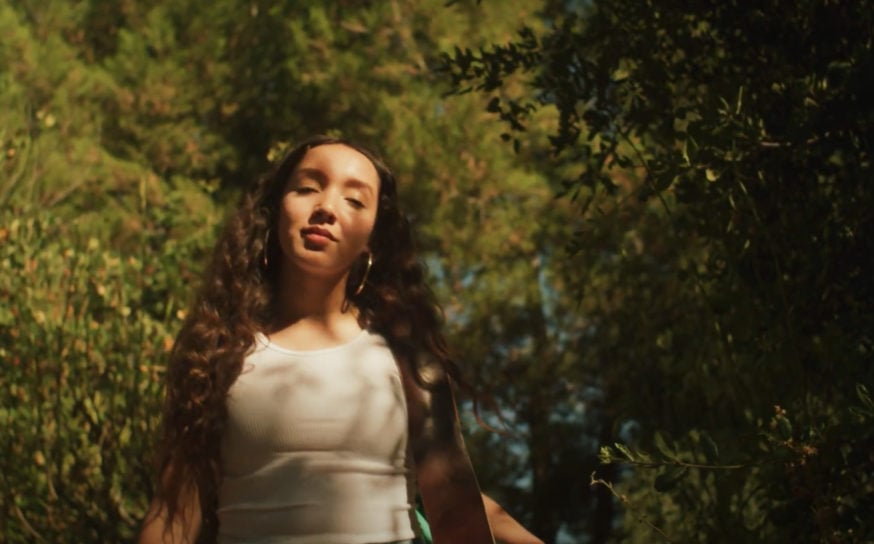Photographer Sherry Rayn Barnett Captured Some of the Music’s Most Iconic Performers
Eye of the music.
-
CategoryArts + Culture, Time Capsule, Visual Art
-
Written byKaren Young
-
Photographs bySherry Rayn Barnett
-
A shot of Sherry’s from the Forum in 1984 when Tina Turner introduced her hit “What’s Love Got to Do with It.”
Above
Sitting in the living room of the cozy Toluca Woods home she shares with a couple of felines, surrounded by her eclectic collection of music memorabilia, Sherry Rayn Barnett reflects with boundless enthusiasm on her life as a photographer and musician.
Sitting in the living room of the cozy Toluca Woods home she shares with a couple of felines, surrounded by her eclectic collection of music memorabilia, Sherry Rayn Barnett reflects with boundless enthusiasm on her life as a photographer and musician.
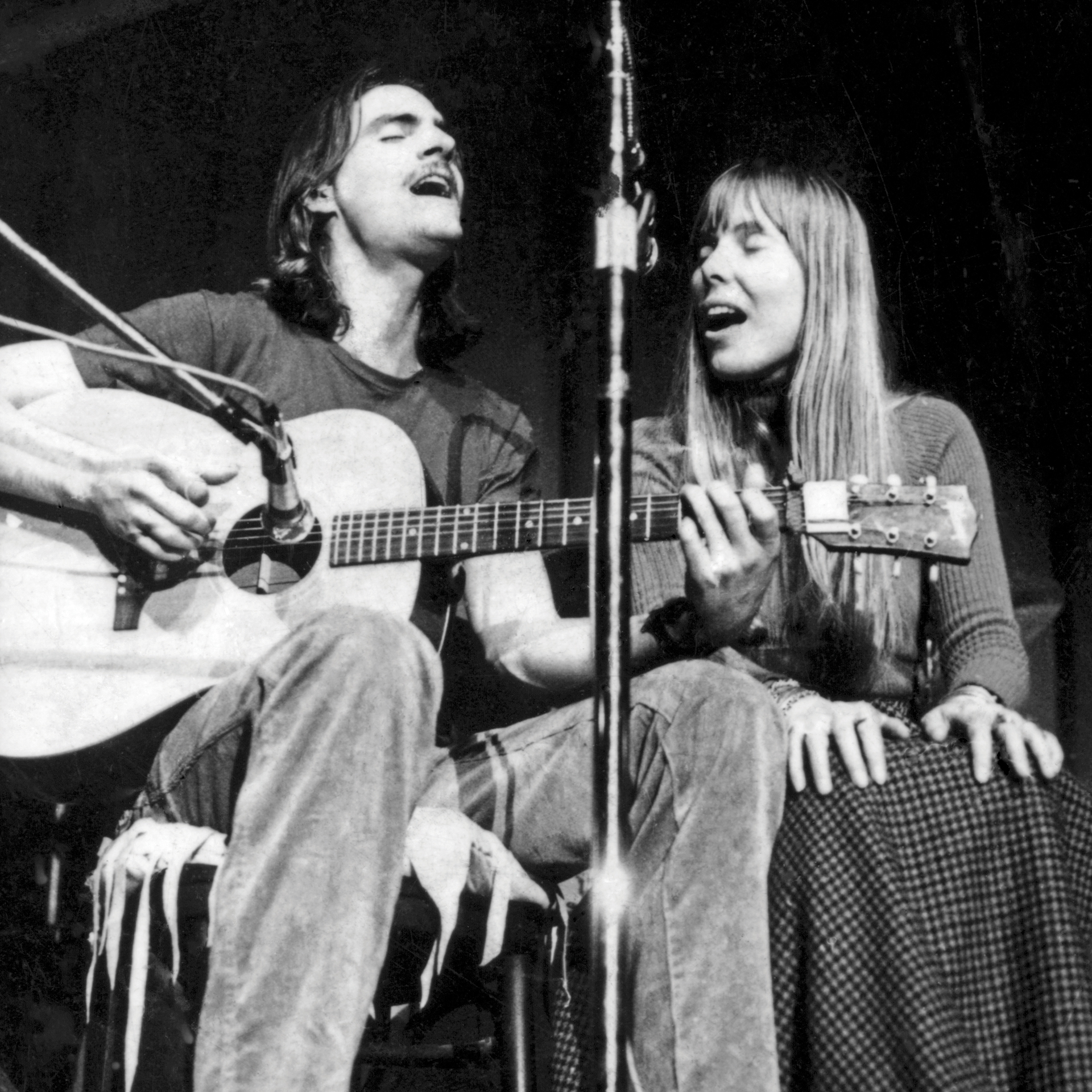
A James Taylor concert at Queens College in 1970 closed with Joni Mitchell as a surprise guest
“I am captivated by what I see on stage and always want to capture those feelings,” says Sherry, who adds she was never comfortable performing solo. “Having the advantage of playing music, I can anticipate the moment. It’s something very intrinsic to me.”
A petite brunette with an infectious grin, she regales with tales forged through five decades of rock, folk, pop, disco, jazz, country, punk and blues—a journey that began as a New York teen in the late ’60s—ultimately landing her in the epicenter of music history.
It’s a story that might not have been told had the pandemic not happened.
Mustangs of the West, the all-female country rock quintet for which she plays lead guitar on a turquoise blue Fender Stratocaster, had just released their first album in 20 years. It was the second incarnation of the band, and they were set to go on tour.
Instead, Sherry shifted her focus to the book she long wanted to write. Her photos have been licensed across all media but have never been seen together in one place. Choosing to focus on two decades, Sherry tells a remarkable historical, visual story through many rare and previously unseen photos.
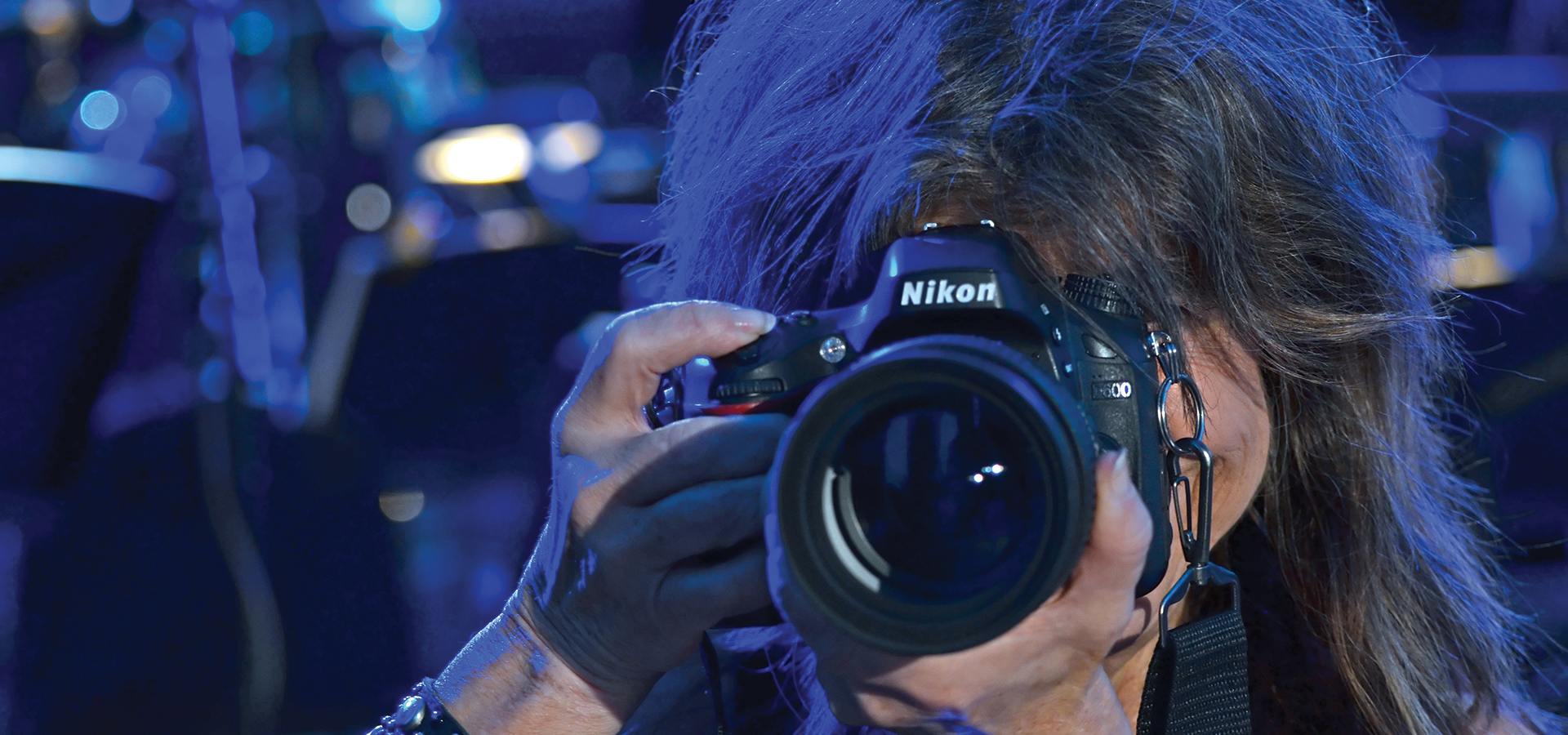
Sherry on the job, with one of the half dozen cameras she owns.
Eye of the Music: The Photography of Sherry Rayn Barnett: New York to LA, 1969-1989 is a stunning collection of more than 200 images, all shot on film—raw and emotive, powerfully capturing the core essence of the performers.
“I wanted to include popular artists, but also others I felt needed to be honored and validated for their contributions to music—people who had something to say with socially conscious songs, or female musicians who never got their due from a time when females were considered a novelty instead of legitimate musicians.”
She cites Birtha and Fanny, two female groups, who were considered the precursors to The Go-Go’s, as examples. Fanny, about which David Bowie once said, “one of the most important female bands in American rock has been buried without a trace,” is currently the subject of a new documentary—Fanny: The Right to Rock—which features Sherry’s photos.
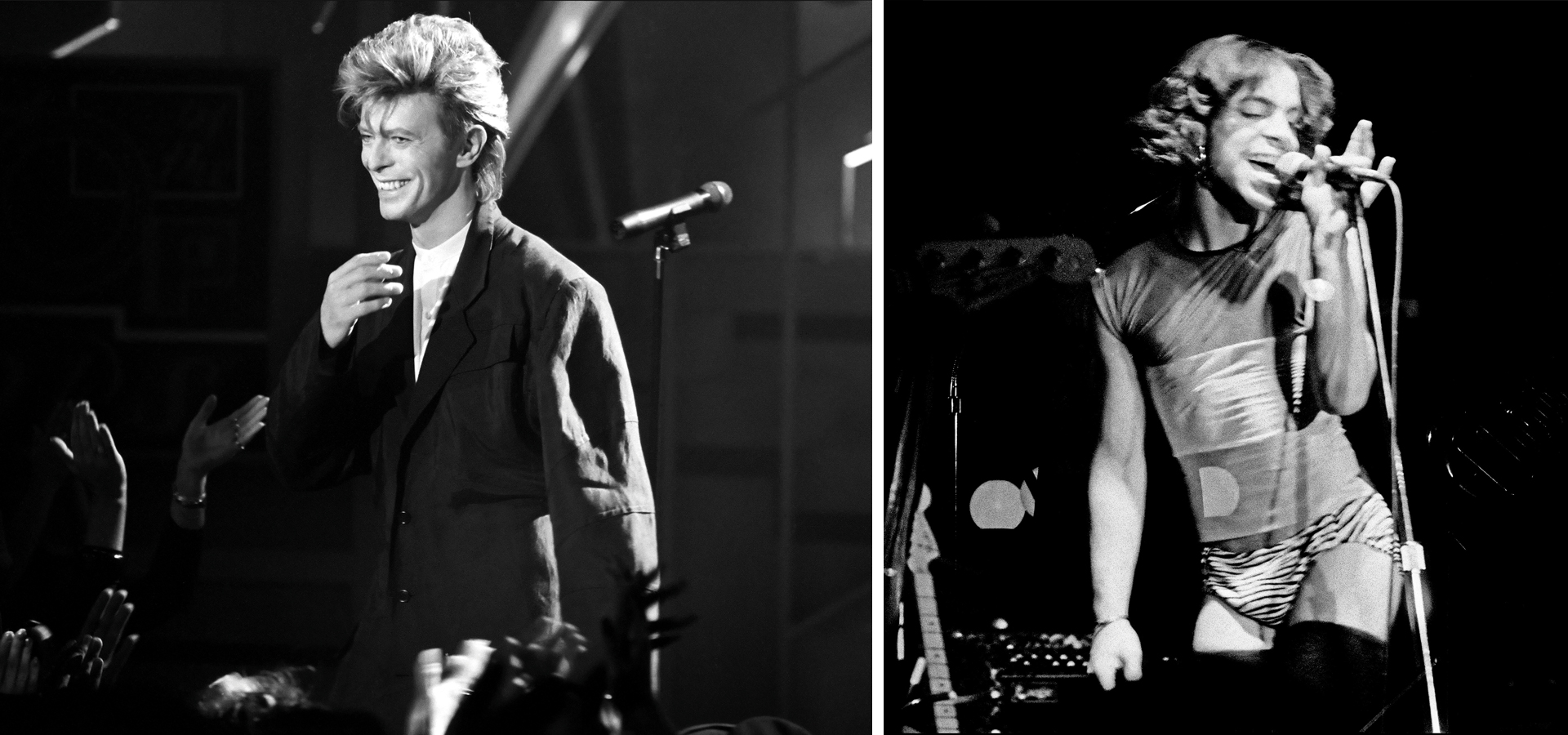
Above: David Bowie appearing on the TV show Top of the Pops in 1987•••|•••Prince making his LA debut in 1979 at The Roxy in a photo that would appear in Rolling Stone
Coming Into Focus
With a songwriter mother who introduced her to rock and roll, Sherry grew up with music ingrained in her home. She studied classical guitar at the High School of Performing Arts, which, after the popular ’80s movie and TV show, became known as the “Fame” school.
Attributing her passion to her father who let her play with his camera collection, Sherry started with a Brownie box camera at age 10, bought her first single-lens reflex Nikon at 15, and by 17 was leading a dual life. Attending school by day and music clubs by night, she biked across Manhattan to Greenwich Village clubs and coffeehouses with a camera strapped to her back, reporting for underground papers.
Describing herself as self-taught, Sherry recalls her first professional assignment in 1969: to shoot Ike and Tina Turner at their Chelsea Hotel room, followed by a performance at the infamous Electric Circus. In the room’s dim light, Sherry captured the faux-leopard-clad duo sitting on a bed, as Tina, who had just awakened from a nap, flipped through a magazine.
In retrospect, Sherry says it was a “profound way to begin her career.” She would photograph the iconic Tina, who went on to have an illustrious solo career, several more times.
Among the soon-to-be legends she shot through her lens eye were Linda Ronstadt, Bonnie Raitt, Joni Mitchell and Nina Simone—all of whom she continued to cover in the following decades. Other subjects: Joan Baez and Judy Collins at Carnegie Hall, Don McLean first singing “American Pie,” and Janis Joplin just months before her death. “If I had to rate the hundreds and hundreds of shows I’ve shot, that Janis Joplin concert out of all would have to be in my top 5. Very possibly number 1.”
Lore—Through the Lens
Hearing Sherry talk about her career is like speeding through a time machine. She vividly recalls a 1970 concert with James Taylor at Queen’s College, referring to it as a “magic night.”
James had already hit the charts with “Sweet Baby James” and chose a relatively unknown Carole King to open for him. She introduced songs that would make up “Tapestry,” which would become one of the best-selling albums of all time.
“The crowd grew impatient waiting for James,” Sherry recalls, “so Carole brought him onstage to play ‘You’ve Got a Friend.’” But the icing on the cake, she says, was his special guest, Joni Mitchell. Sherry happened to be the only photographer present.
“Who knew what a rare, historic performance that would become?”
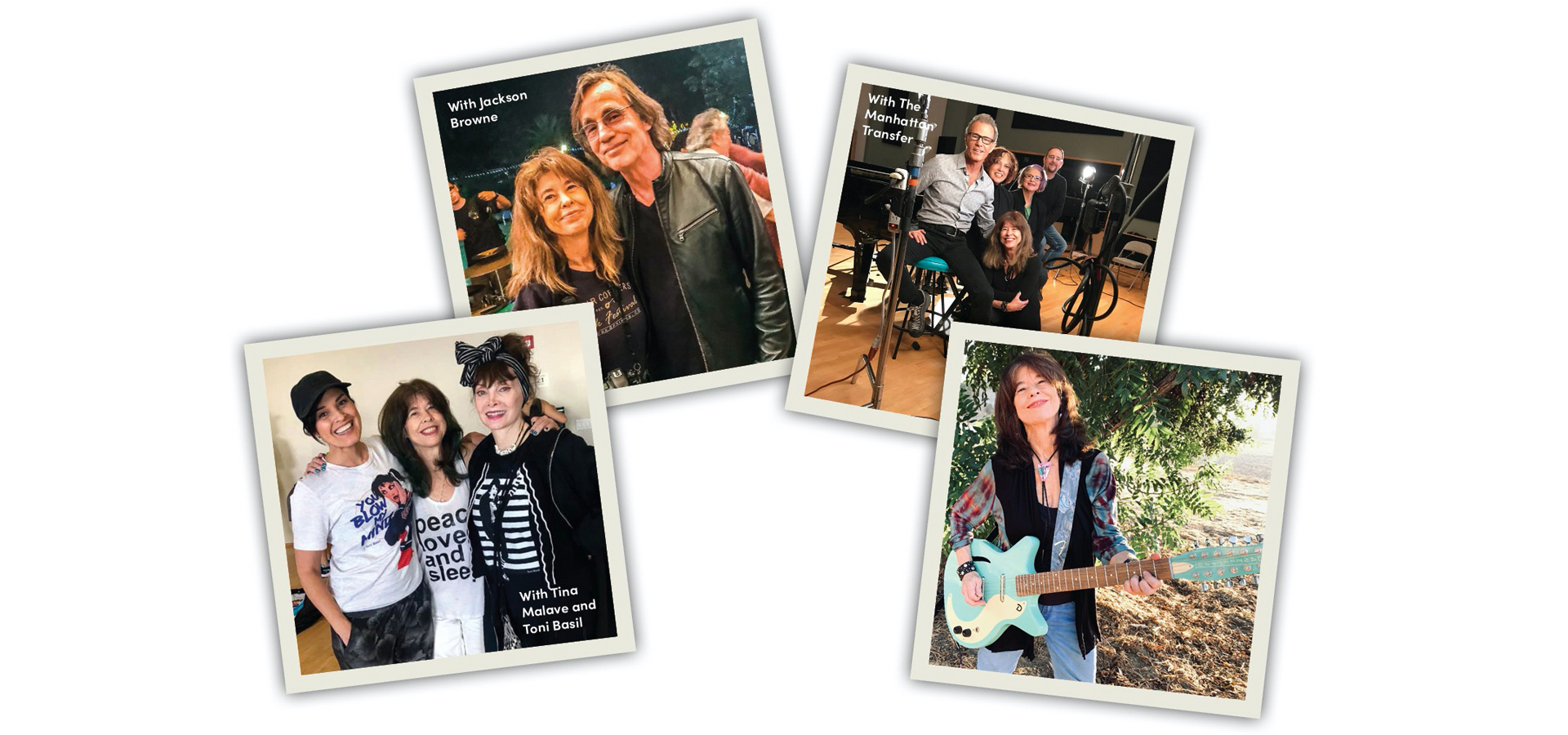
LA Woman
By 1971, lured by the sound of the folk singer-songwriter movement coming out of Laurel Canyon, Sherry hitched her way to LA for what would become a period of defining, electrifying moments covering solo performers and bands.
Toting her Nikon, she could be found everywhere—from small clubs like the Troubadour, McCabe’s Guitar Shop and North Hollywood’s notorious Palomino (where her band the Mustangs also played) to the grandeur of the Hollywood Bowl and the Forum. Among those she photographed during that period: the Carpenters, The Go-Go’s, Little Richard, the Bee Gees, Chuck Berry, David Bowie, Bob Dylan, the Motels and Bette Midler.
One fateful night in 1979 she was at the Roxy on assignment to shoot comedian Judy Carter, who was opening for a singer from Minneapolis making his Los Angeles debut. Clad in zebra-patterned briefs, Prince commanded the stage.
“It’s funny, because the photo isn’t sharp, but Rolling Stone flipped out and published it because it was Prince’s first performance here in LA and nobody else had it.”
Sherry credits much of her success to making the right choices. “The difference between what I was doing and other rock photographers is that the majority were guys who were going for the big rock bands, shooting Led Zeppelin and the Rolling Stones. But I was kind of following my passion for the music that resonated with me, so I’d end up at the small clubs, or I’d find my way at the bigger venues to shoot the Carpenters, The Go-Go’s, Cyndi Lauper, and Bette Midler.”
Plus, Sherry says that access to musicians at concerts was not controlled as it is now. With press credentials and her petite frame—she’s just 5’1”—she could easily maneuver to a front-and-center spot. Being up close was critical because at that time she always shot with a single lens.
“I learned how to make 36 exposures count. I wasn’t looking to get one shot,” explains Sherry. “I was looking to get several shots at one time. And that’s not from an ego standpoint. I didn’t have money for multiple cameras or rolls.”
For the 1987 British import TV show Top of the Pops, Sherry photographed Sting, Natalie Cole, Joe Cocker, Roy Orbison, Carlos Santana and Gloria Estefan, among others. A moment on the set is recalled in her book: “witnessing the undeniable, almost otherworldly energy of David Bowie rehearsing ‘Never Let Me Down’ multiple times before the actual taping was unforgettable.”
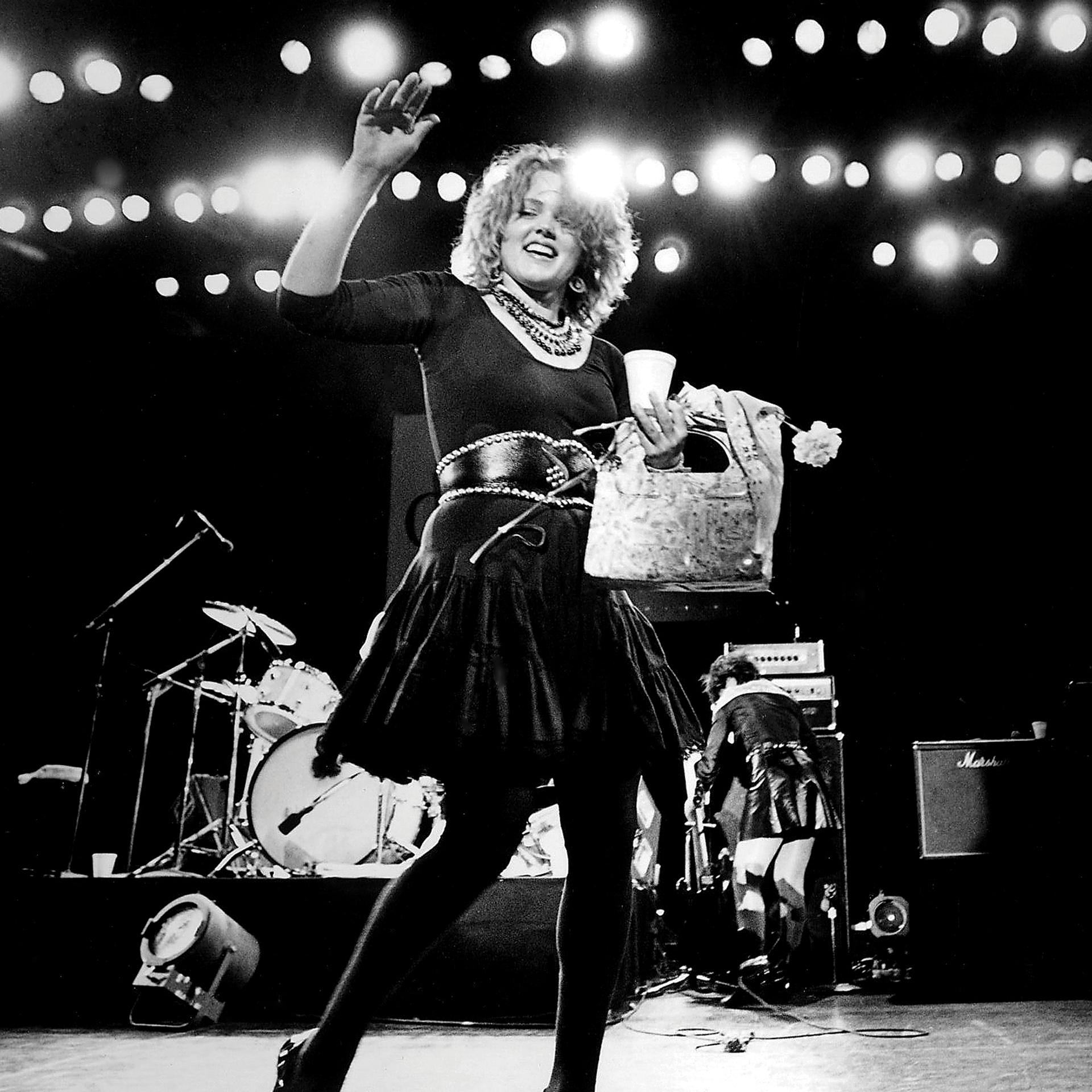
Go-Go’s singer Belinda Carlisle at the Greek Theatre during their Beauty and the Beat tour in 1981.
The Career Chorus
In recent years, Sherry has had a sense of coming full circle. Her band’s latest album was recorded at Jim Henson Studios (formerly A&M Records) where she photographed several intimate recording sessions, including one with Joni Mitchell. Several of Sherry’s photos will be used in the artist’s upcoming archive set. And then, there’s Sherry’s new book.
“I’m just thrilled to see the scope of my work in one place. As a musician, I hope the photos bring us closer to the music and closer to what the artist is conveying, so people can feel like they were there.”
With Carole King, Tina Turner and The Go-Go’s being inducted into the Rock & Roll Hall of Fame in October, it’s fair to bet that Sherry Rayn Barnett’s images will be there too. Just like when her 1972 photo of Chuck Berry closed the show two years ago, Sherry will be up close and personal.
Watch California Come Back to Life Post Drought
It may feel hotter than Hades out there, but this under-two-minute video shows just how far we’ve come over the last couple years.
California Seeks to Level the Paying Field for Female Athletes
The new bill applies to prize money for surfing, cycling, open-water swimming, triathlons and other sports.
Young LA Native Angela Muñoz Releases Her Highly Anticipated Debut
Listen to the 18-year-old singer soar on Introspection.
Get the Latest Stories
